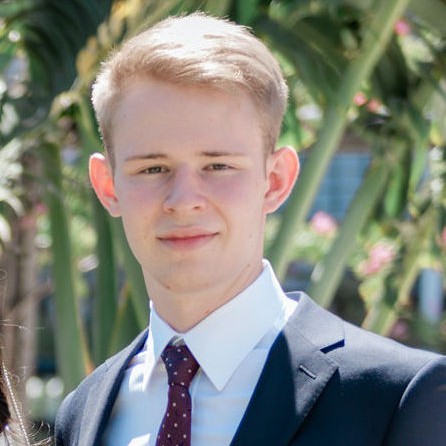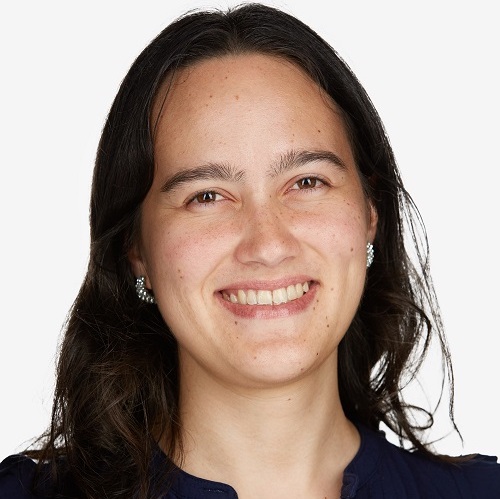Jacobs
1 opportunity
Australia
More than 10,000 employees

Sam
Bachelor of Cyber Security
Edith Cowan University
Can you let us know what company you are working for and which area of the business you work in or which rotation you are currently in?
Jacobs - PP&S - Security Team
What was the first 6 months like? What have you really enjoyed?
My first 6 months involved familiarizing myself with my team, how the business operates, the systems we use and the projects we work on. I've really enjoyed the hands-on approach the Jacobs graduate program takes, been involved in real projects from the start has gave me the opportunity to develop and immediately apply new skills. This hands on approach has quickly developed me into a valuable member of the team and pushes me to keep constantly learning and applying new skills.
Was your position with the Jacobs Grad Programme as you expected it to be? Did anything take you by surprise?
The position pretty much as I expected.
Everyone is keen on maintaining work/life balance, with that in mind what is the longest day you have put it and have you worked weekends at all?
Longest Day - 10.5h
Saturday - Never
I haven't had to work a Saturday since starting.
On a day to day basis, what do you work on?
- Cyber Security Consulting (Inc design review, risk management, risk assessment)
- Project Management
Have you worked on any projects at Jacobs?
Wide variety of transport and security related projects.
What systems do you use for your role in the graduate programme?
- Microsoft office.
- Common Engineering software
What sort of support are you provided at Jacobs?
All of my work is supported by the company in general, there's always many resources I can leverage to do my work, and my supervisors are always willing to assist where necessary and are keen to see me grow within the role.
What skills do you think you need to succeed in your role and do they differ from what you envisioned?
- Problem Solving
- Critical Thinking
- Willingness to learn
- Flexibility to work alone or as part of a team
- Good communication skills
- Positive work attitude
- Good Knowledge of Networking
- Awareness of Cyber Security standards
What are the best perks or benefits at Jacobs?
- Corporate rates
- Flexible working arrangements

Laura
Civil and Environmental Engineer, Master's Degree in Water Resources,
Monash University
Can you let us know what company you are working for and which area of the business you work in or which rotation you are currently in?
I work for Jacobs in the Water Resources team in Brisbane office
What was the first 6 months like? What have you really enjoyed?
At the start, everything was slow and it started to ramp up as soon as I was assigned to my first project. It was a steep learning curve where I was trying to absorb as much information as I could.
I enjoyed being able to see how the many concepts learnt in Uni started to come into play in real infrastructure projects.
Was your position with the Jacobs Grad Programme as you expected it to be? Did anything take you by surprise?
My position was about what I was expecting but the big surprise was to realised how much I don't know yet, and how important is the experience and being exposed to multiple projects in the industry.
Everyone is keen on maintaining work/life balance, with that in mind what is the longest day you have put it and have you worked weekends at all?
The longest day I have worked was about 2 consecutive days getting ready a deliverable for a project that had a tight deadline.
Yes, I have had to work on Saturdays but just 3 times in almost 2 years.
On a day to day basis, what do you work on?
I do a lot of data processing which entails rainfall and streamflow data in spreadsheets. Excel is definitely my best friend!
I also do intensive GIS tasks, which include reviewing model results, design layers, model files. I do this usually in QGIS and then I prepare flood maps in ArcGIS.
Report writing is another big part of my job. As we progress through the project I usually have to start building up the report which is an important component of the deliverables.
From time to time I have the chance of attending client meetings which are always a great experience for grads. These meetings usually require preparation of some slides and technical check-ins beforehand.
Have you worked on any projects at Jacobs?
Multiple flood studies in the Northern Territory for aboriginal communities, flood assessments for linear infrastructure projects mostly in Queensland, Dam failure impact assessments, and a few mining projects.
What systems do you use for your role in the graduate programme?
I use Microsoft office suit in general, QGIS, ArcGIS, Mapinfo, One Note, Notepad++, Hydraulic modelling software like TUFLOW and MIKE, Hydrologic modelling software like RORB and XP-RAFTS
What sort of support are you provided at Jacobs?
I do get a lot of support from all the seniors in my team to learn how to interpret model results, detail direction on the step by step process in each project, and technical guidance. Junior team members supported me when learning how to use the different software packages. My direct managers are very supportive on my carreer progresion plan and they help me to identify project opportunies that can get me to where I want to head.
What skills do you think you need to succeed in your role and do they differ from what you envisioned?
Report writing, critical thinking, technical ability with software, and soft skills to interact with people
What are the best perks or benefits at Jacobs?
Free food and drinks, Visa vouchers for great work!

Suvekchhya
Bachelor of Engineering (Mechanical)
University of New South Wales
Can you let us know what company you are working for and which area of the business you work in or which rotation you are currently in?
I am currently working for Jacobs Group Australia in the Built Environment Sector. Specifically, I work in the Mechanical Team within Building services, which focuses primarily in Heating Ventilation and Air conditioning.
What was the first 6 months like? What have you really enjoyed?
The first 6 months of the graduate program mainly involved helping me settle into the new working environment, completing of required online training, and familiarizing myself with the company. I was also given opportunities to meet the other graduates who joined with me through social and graduate events. Gradually as the weeks progressed, I was given more responsibilities in bigger projects as part of my job. One of the best parts of the program was getting to know graduates from other sectors, as it gave you a better understanding of the different sectors within the business through your graduate networks. It also promoted a good company culture.
Was your position as you expected it to be? Was anything surprising?
Personally, as I had experience in building services before, I roughly knew what to expect regarding the type of work that I would be required to do so that did not surprise me too much. I was pleasantly surprised with the amount of information and resources available clearly for all the engineers including online versions of codes, supplier data, and design guides that were easily accessible for all employees. I was also surprised by the 24/7 IT Support that was provided for all employees for any potential technical issues.
What is the longest day you have worked and have you had to work Saturdays at all?
The longest day I have had to work was for a project delivery where information was provided last minute with delivery deadline coming up, where I started work at 7am and finished at 9pm. However, this is a rare situation and I have generally logged off on time on most of my working days. I have not had to work weekends so far.
What sort of work do you do, day to day?
My typical workday consists of working closely with my project team, architects, project managers, drafters, and various engineering disciplines. Typically, when working on a project, I work closely with architects to understand the building and space layout and determine how much space is available for the mechanical discipline, and therefore am always on team meetings.
After understanding the project and spatial requirement, I gather the data I require to do calculations and determine the best type of system for the space. This includes looking through existing systems and seeing if it can be integrated into the new design. I work closely with my seniors for their expert opinion and best practices advice, and consistently refer to the Building Code of Australia, Australian standards and AIRAH Design guides when doing engineering design work. This also includes coordinating with structural and electrical engineers to ensure our designs work well together.
Additionally, we write mechanical design reports to summarise the design concept. The final design layout then goes to the drafters, who use either AutoCAD or Revit and create the final mechanical drawings. I always ensure to take a lunch break, even if short, to ensure I am getting adequate breaks in between.
What projects have you worked on?
I have worked on multiple types of projects for mechanical design including Hospitals, Sub-stations, Universities, Train Stations, Commercial office spaces as well as design Lab Gas systems.
What systems do you use?
I frequently use the heat load software Camel, PDF editing software Bluebeam, and sparing use the 2D Drafting software AutoCAD. Engineers within this industry will highly benefit from knowing how to use REVIT as well.
What sort of support do you get from your work? Either from your direct leader or the company in general?
There are many support systems available at Jacobs, starting from your immediate team. Your immediate team as well as your project team is always willing to support and answer questions for younger graduates, whether is it technical or company related. The company is also supportive of a good and flexible work-life balance. Additionally, the Jacobs safety culture is very much engrained within the company's values and thus employees benefit from good support within the mental health space.
What skills do you think you need to succeed in your role? Is this different to what you thought you would need?
I believe one of the main skills required to succeed in this role is understanding the fundamentals of heating, ventilation, and air conditioning very well, as well as being familiar with the building codes and Australian standards. Whilst I often used to prioritise technical capability over any soft skills, I soon found that alongside your technical capabilities you also require good negotiation skills, people skills, organisational skills and decision-making skills in order to be successful in this role.
And finally, what sort of perks are offered by your organisation?
Some of the perks of working at Jacobs include flexible working arrangement (i.e. option to work from home, hybrid working style however this will depend on your team), ability to purchase additional leave on top of annual leave and paid flu vaccination every year.
